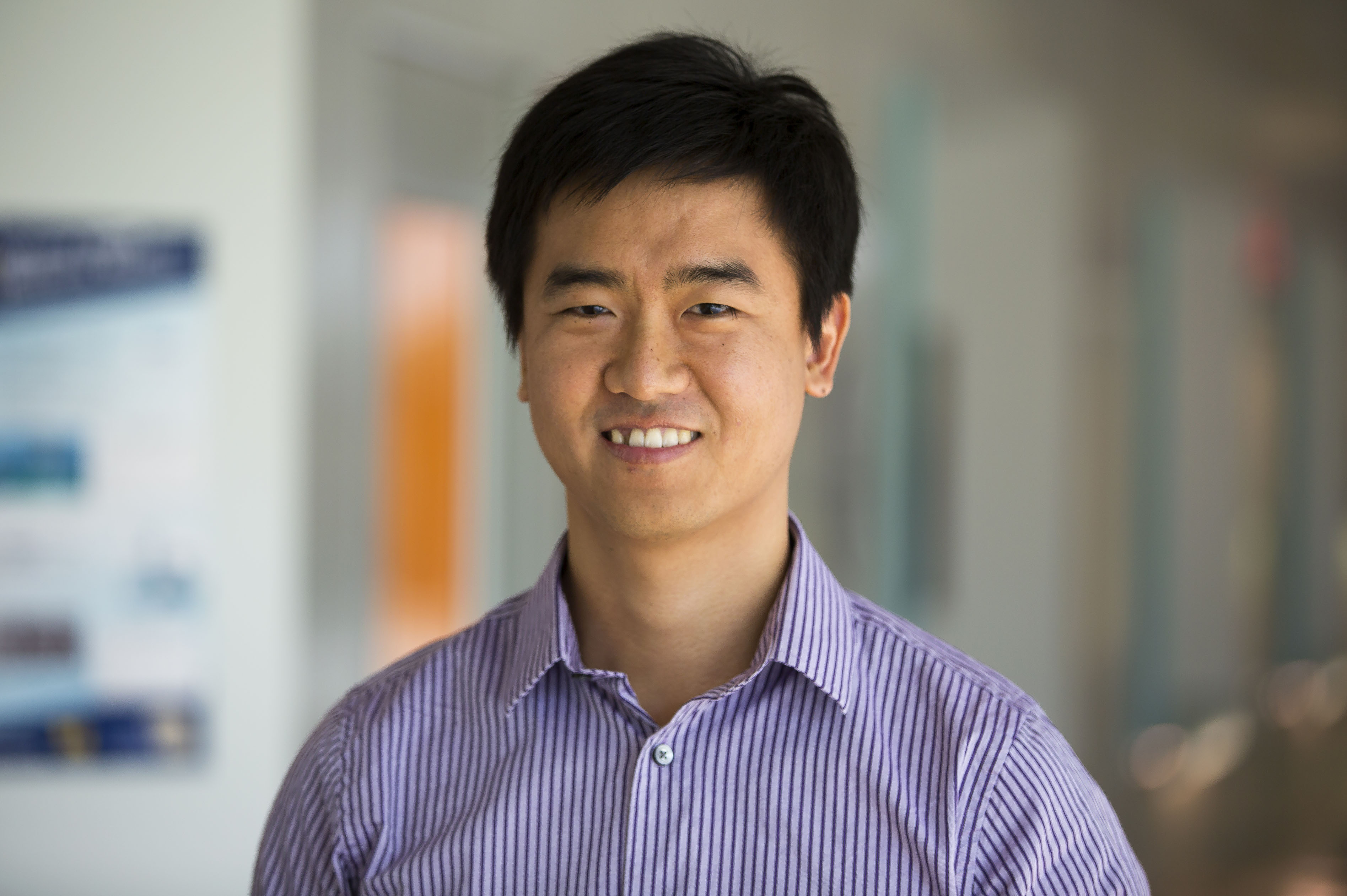Hun-Seok Kim receives DARPA Young Faculty Award to advance research in IoT networks
Kim’s research is expected to impact the future design and wireless operation of the next generation of Internet of Things (IoT) devices

 Enlarge
Enlarge
Hun-Seok Kim, assistant professor of Electrical and Computer Engineering, has been awarded a 2018 Young Faculty Award from the Defense Advanced Research Projects Agency (DARPA) for his research project “Hyper‐Dimensional Modulation for Robust Low‐Latency Low‐Power IoT Networks.”
His research is expected to impact the future design and wireless operation of the next generation of Internet of Things (IoT) devices, which includes intelligent control of devices such as drones and self-driving cars.
Specifically, Prof. Kim’s project investigates a new innovative waveform; hyper‐dimensional modulation (HDM) for ultra-reliable low-latency communications (URLLC) in highly contested and austere channels.
URLLC is a new service category defined by the International Telecommunication Union that has been enabled in 5G (fifth-generation wireless). It is critical for power- and complexity-constrained military, industrial, and consumer applications in a future world containing a trillion IoT devices, which technology experts expect to see by 2035.
Kim is proposing a new class of practical modulation called hyper‐dimensional modulation HDM for use in URLLC applications. Existing solutions typically use orthogonal modulation and conventional error correction schemes, which impose significant overhead on ultra‐low power IoT devices. HDM, on the other hand, eliminates the need for explicit error correction coding, and allows a unified hardware / software architecture shared between the HDM modem, linear signal transform, and deep neural network kernels commonly required in forthcoming intelligent IoT devices, explained Kim.
Successful demonstration of HDM will fundamentally change the paradigm of designing and operating wireless IoT devices.
Kim’s research focuses on system analysis, novel algorithms, and efficient VLSI architectures for low-power/high-performance wireless communication, signal processing, computer vision, and machine learning systems.
He has taught the undergraduate courses Digital Integrated Circuits (EECS 312) and Digital Signal Processing Laboratory (EECS 452), and the graduate course VLSI for Wireless Communication and Signal Processing (EECS 598).
He is an associate editor of IEEE Transactions on Green Communications & Networking and IEEE Solid State Circuits Letters, and is the author of 7 U.S. patents.
About the DARPA Young Faculty Award
According to DARPA, “The objective of the DARPA Young Faculty Award (YFA) program is to identify and engage rising research stars in junior faculty positions at U.S. academic institutions.”
“The long-term goal of the YFA program is to develop the next generation of academic scientists, engineers and mathematicians in key disciplines who will focus a significant portion of their career on DoD and national security issues.”
In the Media
3 New Chips to Help Robots Find Their Way Around
IEEE Spectrum highlights a new chip designed by Professors Dennis Sylvester, David Blaauw, and Hun-Seok Kim, along with PhD student Ziyun Li, that helps robots better navigate the world